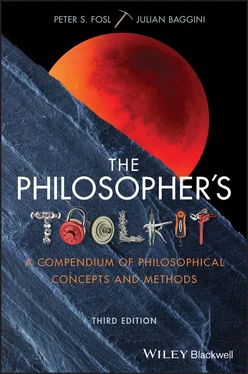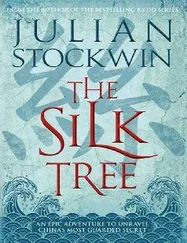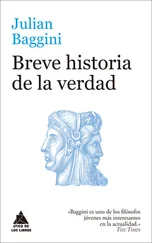We can infer inductively that the sun will rise tomorrow on the basis of what it’s done in the past (i.e. that the future will resemble the past) only if we already assume that the future will resemble the past. Eighteenth‐century Scot David Hume has remained an important philosopher in part precisely for his analysis of this problem.
Believing, therefore, that the sun may possibly not rise tomorrow is, strictly speaking, not illogical, since the conclusion that it must rise tomorrow does not inexorably follow from past observations.
Acknowledging the relative weakness of inductive inferences (compared to those of deduction), good reasoners qualify the conclusions reached through it by maintaining that they follow not with necessity but only with probability (i.e. it’s just highly probably that the sun will rise tomorrow). But does this fully resolve the problem? Can even this weaker, more qualified formulation be justified? Can we, for example, really justify the claim that, on the basis of uniform and extensive past observation, it is more probable than not that the sun will rise tomorrow?
The problem is that there is no deductive argument to ground even this qualified claim. To deduce this conclusion successfully we would need the premise ‘what has happened up until now is more likely to happen tomorrow’. But this premise is subject to just the same problem as the stronger claim that ‘what has happened up until now must happen tomorrow’. Like its stronger counterpart, the weaker premise bases its claim about the future only on what has happened up until now, and such a basis can be justified only if we already accept the uniformity (or at least probable continuity) of nature. But again, the uniformity (or continuity) of nature is just what’s in question.
Despite these problems, it seems that we can’t do without inductive generalisations and inductive reasoning generally. They are (or at least have been so far!) simply too useful to refuse. Inductive generalisations compose the basis of much of our scientific rationality, and they allow us to think about matters concerning which deduction must remain silent. In short, we simply can’t afford to reject the premise that ‘what we have so far observed is our best guide to what is true of what we haven’t observed’, even though this premise cannot itself be justified without presuming itself.
There is, however, a price to pay. We must accept that engaging in inductive generalisation requires that we hold an indispensable belief which itself, however, must remain in an important way unjustified. As Hume puts it: ‘All our experimental conclusions proceed upon the supposition that the future will be conformable to the past. To endeavour, therefore, the proof of this last supposition by probable arguments … must be evidently going in a circle, and taking that for granted, which is the very point in question’ ( Enquiry Concerning Human Understanding , 4.19). Can we accept reasoning and sciences that are ultimately groundless?
1 1.1 Arguments, premises, and conclusions
2 1.2 Deduction
3 1.7 Fallacies
4 2.4 Analogies
5 5.5 Hume’s fork
Francis Bacon (1620). Novum Organum
David Hume (1739). A Treatise of Human Nature, Bk 1, Part 3, Section 6
D.C. Stove (1986/2001). The Rationality of Induction
* Colin Howson (2003). Hume’s Problem: Induction and the Justification of Belief
1.4 Validity and soundness
In his book, The Unnatural Nature of Science , the eminent British biologist Lewis Wolpert (b. 1929) argued that the one thing that unites almost all of the sciences is that they often fly in the face of common sense. Philosophy, however, may exceed even the (other?) sciences on this point. Its theories, conclusions, and terms can at times be extraordinarily counterintuitive and contrary to ordinary ways of thinking, doing and speaking.
Take, for example, the word ‘valid’. In everyday speech, people talk about someone ‘making a valid point’ or ‘having a valid opinion’. In philosophical speech, however, the word ‘valid’ is reserved exclusively for arguments. More surprisingly, a valid argument can look like this:
1 All blocks of cheese are more intelligent than any philosophy student.
2 Meg the cat is a block of cheese.
3 Therefore, Meg the cat is more intelligent than any philosophy student.
All utter nonsense, you may think, but from a strictly logical point of view this is a perfect example of a valid argument. How can that be so?
Validity is a property of well‐formed deductive arguments, which, to recap, are defined as arguments where the conclusion in some sense (actually, hypothetically, etc.) follows from the premises necessarily (see 1.2). Calling a deductive argument ‘valid’ affirms that the conclusion actually does follow from the premises in that way. Arguments that are presented as or taken to be successful deductive arguments, but where the conclusion does not in fact definitely follow from the premises, are called ‘invalid’ deductive arguments.
The tricky thing, in any case, is that an argument may possess the property of validity even if its premises or its conclusion are not in fact true . Validity, as it turns out, is essentially a property of an argument’s structure or form; and so, the content and truth value of the statements composing the argument are irrelevant. Let’s unpack this.
Consider structure first. The argument featuring cats and cheese given above is an instance of a more general argumentative structure, of the form:
1 All Xs are Ys.
2 Z is an X.
3 Therefore, Z is a Y.
In our example, ‘block of cheese’ is substituted for X, ‘things that are more intelligent than all philosophy students’ for Y, and ‘Meg’ for Z. That makes our example just one particular instance of the more general argumentative form expressed with the variables X, Y, and Z.
What you should notice is that you don’t need to attach any particular meaning to the variables for this particular form to be a valid one. No matter with what we replace the variables, it will always be the case that if the premises are true (even though in fact they might not be), the conclusion must also be true. If there’s any conceivable way possible for the premises of an argument to be true but its conclusion simultaneously be false, any coherent way at all, then it’s an invalid argument.
This boils down to the notion of validity as content‐blind or topic‐neutral . It really doesn’t matter what the content of the propositions in the argument is – validity is determined by the argument having a solid, deductive structure. Our block‐of‐cheese example is then a valid argument, because if its ridiculous premises were true, the ridiculous conclusion would also have to be true. The fact that the premises are ridiculous is neither here nor there when it comes to assessing the argument’s validity.
Another way of understanding how arguments work as to think of them along the model of sausage machines. You put ingredients (premises) in, and then you get something (conclusions) out. Deductive arguments may be thought of as the best kind of sausage machine because they guarantee their output in the sense that when you put in entirely good ingredients (all true premises), you get out a fine‐quality product (true conclusions). Of course, if you don’t start with good ingredients, deductive arguments don’t guarantee a good end product.
Читать дальше












